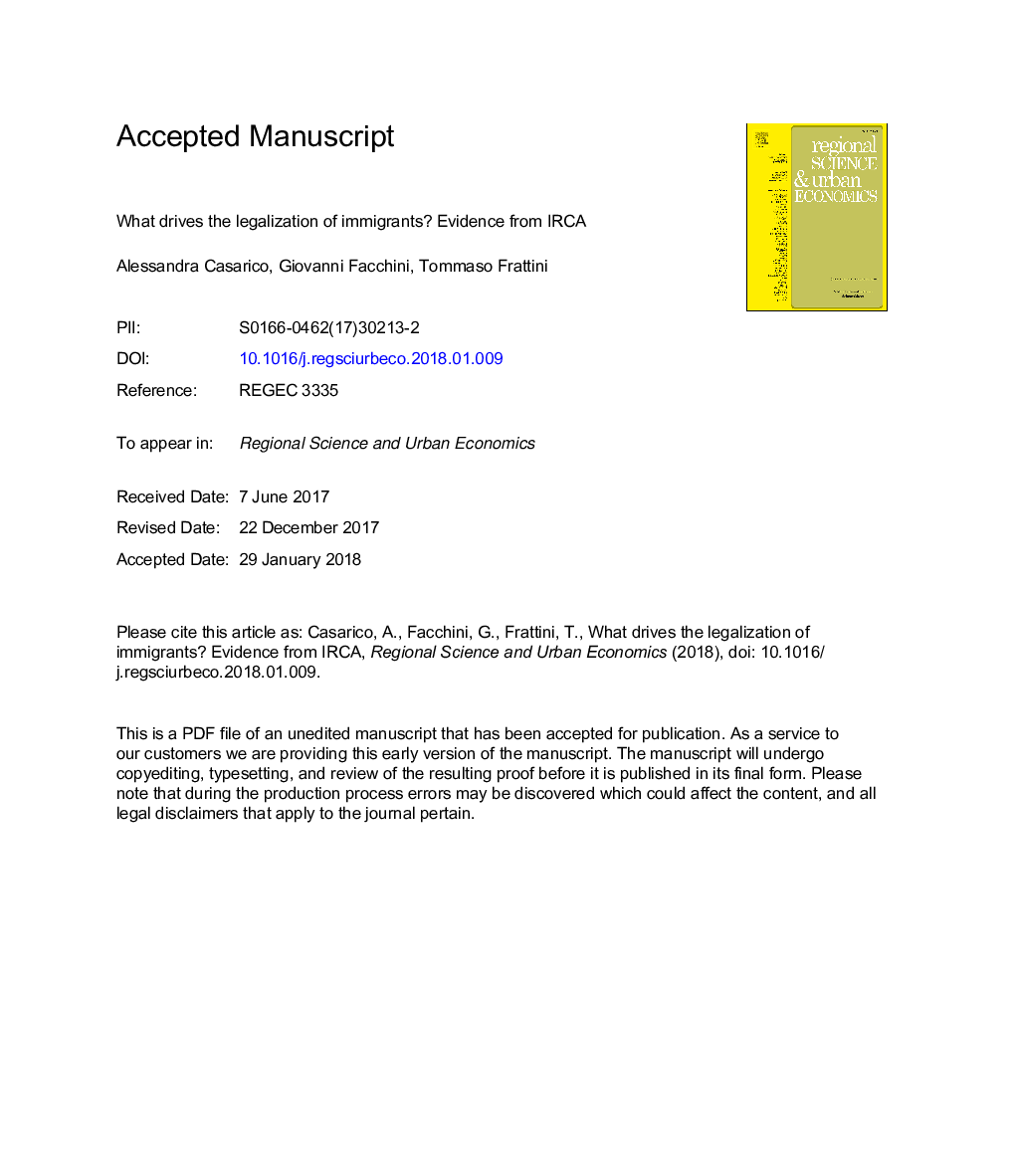| Article ID | Journal | Published Year | Pages | File Type |
|---|---|---|---|---|
| 7383696 | Regional Science and Urban Economics | 2018 | 51 Pages |
Abstract
We develop a model to understand the trade-offs faced by an elected representative in supporting an amnesty when a restrictive immigration policy is in place. We show that an amnesty is more desirable the more restricted are the occupational opportunities of undocumented immigrants and the smaller is the fiscal leakage to undocumented immigrants via the welfare state. Empirical evidence based on the voting behavior of U.S. Congressmen on the Immigration Reform and Control Act of 1986 provides strong support for the predictions of our theoretical model.
Keywords
Related Topics
Social Sciences and Humanities
Economics, Econometrics and Finance
Economics and Econometrics
Authors
Alessandra Casarico, Giovanni Facchini, Tommaso Frattini,
